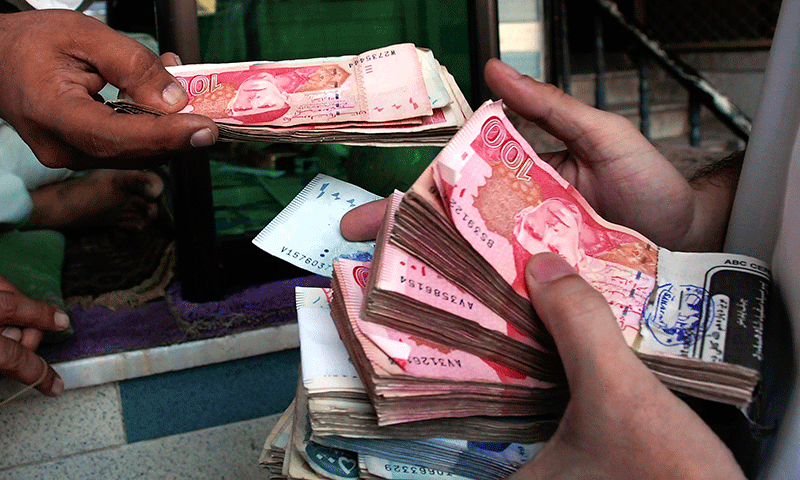ISLAMABAD: Amid dissent by Sindh Chief Minister Murad Ali Shah, the National Economic Council (NEC) on Monday set next year’s economic growth rate target at 4.8 per cent to be supported by Rs2.135 trillion consolidated development outlay — about 40pc higher than current year’s revised budget of Rs1.527tr.
The meeting of the NEC — the highest economic decision-making body in the country — was presided over by Prime Minister Imran Khan. Chief ministers of all the provinces and other members of the NEC participated in the meeting.
The Prime Minister Office said the meeting also approved Macroeconomic Framework for Annual Plan 2021-22 envisaging growth target of 4.8pc, with sectoral growth targets of 3.5pc for agriculture, 6.5pc for industrial sector, and 4.7pc for services sector.
The meeting was informed by the Planning Commission that revised estimate for the total development outlay of the ongoing year was Rs1.527tr. For next year, it approved consolidated national development programme of Rs2.135tr, including Rs1.235tr worth of annual development plans (ADPs) of the four federating units.
Sindh CM protests meagre share in PSDP
The federal Public Sector Development Programme (PSDP) for 2021-22 was approved at Rs900bn compared to Rs650bn allocation for the current year, showing an increase of 38.5pc. The PSDP 2021-22 also included Rs101bn foreign funding in the shape of loans and grants.
On the other hand, the cumulative ADPs of the four provinces was set at Rs1.235tr which is almost 41pc higher than current year’s revised estimates of Rs877bn. The provincial ADPs of Rs1.235tr also involve foreign exchange component of about Rs192bn. As such, the overall national development portfolio for next year is estimated at Rs2.135tr including a total foreign exchange component of Rs293bn.
Soon after the meeting, Sindh Chief Minister Murad Ali Shah said he and his colleague Nisar Khoro protested during the meeting over step-motherly treatment being meted out to Sindh in allocation of development funds. “We recorded our strong protest over this severe injustice. The provinces had not been consulted before inclusion of a few schemes in the PSDP. We fear this will result in corruption,” he said outside the Sindh House.
He said without the consent of the Sindh government, this development budget could not be approved by the parliament and he told this to prime minister to record his protest and dissent. He said the prime minister was also asked to make part of the NEC proceedings a formal dissenting letter he would be sending in a day or two. He said the prime minister conceded that consultation had not been done with provinces in the finalisation of the development programme and yet he took no step to address the situation.
He said the development funds which used to be given to the province had been drastically reduced. Mr Shah said they did not have very good relations with the previous PML-N government either but the PSDP allocations for Sindh in their last year stood at Rs27bn which were reduced to Rs14bn, followed by Rs9bn and Rs8bn since then. For 2021-22, this has been slashed further to Rs5.1bn.
In comparison, Mr Shah said other smaller provinces had been given Rs20bn each and Rs44bn for Punjab. He said he was happy that allocations for other provinces had been increased but this was unfair to allocate a meagre amount for Sindh’s development projects.
He alleged that funds had been allocated for union council Halepoto while ignoring the rest of the people of the province. He said the federal government had once said Sindh did not belong to them and this time they had proved it with their actions. He said the prime minister did not let him speak freely in the meeting.
The Prime Minister Office said total PSDP of Rs900bn included Rs244bn for Transport & Communications, Rs118bn for energy, Rs91bn for water resources, Rs113bn for social sector, Rs100bn for regional equalisation, Rs31bn for science and technology & IT sector, Rs68bn for SDGs and Rs17bn for production sector.
The council was informed that the focus of PSDP will be on infrastructure improvement, water resources development, social sector improvement, regional equalisation, skill development, promotion of science and technology, and IT, as well as climate change mitigation measures.
The meeting was informed that the PSDP would cater to the government’s plans to increase focus on lagging areas and regions.
The NEC was also informed that with the operationalisation of the Public Private Partnership Authority (P3A), a number of PPP projects are also being expeditiously processed for implementation. These include Sukur-Hyderabad Motorway and Sialkot-Kharian Motorway, which are at an advanced stage while other major projects such as Karachi Circular Railway (KCR), KPT-Pipri Freight Corridor, Kharian-Rawalpindi Motorway, Balkasar-Mianwali Road, Quetta-Karachi-Chaman Highway were also likely to be launched during the year.
Published in Dawn, June 8th, 2021













































